How To Write A Research Paper
Research Paper Title


How to Write a Good Research Paper Title
11 min read
Published on: Jan 5, 2024
Last updated on: Oct 28, 2024

People also read
How to Write a Research Paper Step by Step
How to Write a Proposal For a Research Paper in 10 Steps
A Comprehensive Guide to Creating a Research Paper Outline
Types of Research - Methodologies and Characteristics
350+ Interesting Research Paper Topics to Get You Started
Interesting Psychology Research Topics & Ideas
Qualitative Research - Types, Methods & Examples
Understanding Quantitative Research - Definition, Types, Examples, And More
Research Paper Example - Examples for Different Formats
How To Start A Research Paper - Steps With Examples
How To Write a Literature Review for a Research Paper | Steps & Examples
Types of Qualitative Research Methods - An Overview
Understanding Qualitative vs. Quantitative Research - A Complete Guide
How to Cite a Research Paper in Different Citation Styles
Easy Sociology Research Topics for Your Next Project
200+ Outstanding History Research Paper Topics With Expert Tips
How To Write a Hypothesis in a Research Paper | Steps & Examples
How to Write an Introduction for a Research Paper - A Step-by-Step Guide
How to Write a Conclusion for a Research Paper in 3 Simple Steps
How to Write an Abstract For a Research Paper with Examples
How To Write a Thesis For a Research Paper Step by Step
How to Write a Discussion For a Research Paper | Objectives, Steps & Examples
How to Write the Results Section of a Research Paper - Structure and Tips
How to Write a Problem Statement for a Research Paper in 6 Steps
How To Write The Methods Section of a Research Paper Step-by-Step
How to Find Sources For a Research Paper | A Guide
Share this article
In scholarly writing, the title plays a subtle yet pivotal role. Ever wondered how a simple string of words can make or break a research paper's impact?
Your research paper's title serves as the initial point of contact for your reader, forming their first impression of your work. Therefore, careful consideration of your title is crucial.
There are fundamental principles to bear in mind: your title should be informative, attention-grabbing, and contextually fitting.
This guide provides a detailed view of these essential qualities, by looking at the steps to write a research paper title. We'll break down what makes a great title.
So let’s get started!
On This Page On This Page -->
What is Research Paper Title, and Why is it Important?
A research paper title is a concise and informative heading that encapsulates the main theme or focus of a research study. It serves as the first point of contact between the reader and the research paper, providing a peek into the purpose of the study.
It is important because the research paper title tells readers what the study is about almost instantly.
A good title not only grabs attention but also helps in finding the research online. It shows the professionalism of the study and makes it easier for everyone to understand and engage with the research.
So, a well-crafted title is like a guide that leads readers to the core of the research paper .
Characteristics of a Good Research Title
According to rhetoric scholars Hairston and Keene , creating an effective paper title involves achieving the goals outlined below:
- Content Preview: A good title gives a glimpse of the research content.
- Engagement Factor: An effective title sparks reader interest.
- Tone Alignment: It reflects the scholarly tone of the paper.
- Keyword Integration: Includes essential keywords for better searchability.
- Prioritize Clarity: Use clear, concise language for broad understanding.
- Embrace Conciseness: Keep titles brief, omitting unnecessary details.
- Ensure Specificity: Include unique details to distinguish the research.
With these 7 characteristics of a research title in mind, let's now explore the steps to craft an ideal research paper title.
How to Write a Research Paper Title in 5 Steps
In the following sections, we'll walk through a five-step process designed to help you create a title that is truly impressive.
Step 1: Define the Core Elements of Your Research
Before crafting your research paper title, it's essential to answer key questions about your study. These questions help you identify the main focus and key components of your research paper. Consider:
- Research Topic: What is the primary subject of your study?
- Research Problem or Question: What issue are you addressing, or what question are you seeking to answer?
- Methodology: What methods or approaches did you use in your research?
- Results/Findings: What are the main outcomes or results of your study?
Step 2: Identify Essential Keywords
Identify significant keywords related to your research paper. These terms will play a crucial role in creating a title that effectively communicates your study's focus.
Step 3: Constructing a Research Title Using Keywords
Combine the identified keywords into a concise and descriptive research paper title. Weave together the essential elements of your study while maintaining clarity and relevance.
The sentence above, describing the research on smoking cessation programs, is undoubtedly too lengthy for a research paper title . Therefore, the forthcoming steps will involve refining and succinctly polishing the title for clarity and conciseness.
Step 4: Develop a Working Research Title
To create a working title, remove elements that make it a complete sentence but keep everything important to the study. Delete unnecessary and redundant words not central to the research or likely excluded from a database search.
Original Working Title:
Refined Title:
Note: The goal is to shorten the title to 16 words or fewer, making it concise and effective for a research paper.
Step 5: Trim Unnecessary Words and Phrases
Remove any nonessential words and phrases from your title. The number of subjects studied and exact outcomes may not be crucial, and detailed methods can be omitted for conciseness. Focus on key terms for database search optimization.
Final Refined Title:
Adding a Research Paper Subtitle
If your title needs additional details about your methodology or sample, consider adding a subtitle after a colon.
Research Paper Title Examples
Let's start by examining research title examples suitable for students. We will explore the basic formats for research paper title pages, including MLA and APA styles.
Research Paper Title Page MLA
Title Page For A Research Paper APA Style

Scientific Paper Title
Here are 5 examples of research titles for scientific papers:
Tips on Formulating a Good Research Paper Title
When creating a title for your research paper, consider the following general tips to capture the reader's attention and effectively convey the purpose of your study:
- Summarize your research in the fewest possible words to maintain clarity and reader engagement.
- Incorporate essential keywords that researchers working in your field are likely to use.
- Use compelling and attention-grabbing language to make your title stand out.
- Ensure your title accurately captures the purpose of your research, conveying the central question or objective.
- Clearly define the scope of the study in the title, indicating the specific focus of your research.
- Consider phrasing your title in the form of a question if it enhances the intrigue and aligns with the nature of your research.
- Prioritize readability and clarity to make your title easily understandable for a broad audience.
- Optimize your title for search engines by including relevant keywords that researchers might use when seeking similar studies.
- Minimize the use of field-specific jargon that may alienate readers unfamiliar with your subject.
- Ensure the title summarizes the core findings or contributions of your research.
Research Paper Title Checklist
Here's a checklist table to guide you on how to write a research paper title:
In conclusion , writing an effective research paper title is a vital skill that demands accuracy, clarity, and engagement. Prioritize conciseness and specificity while ensuring relevance to the research content. Remember to integrate essential keywords for enhanced searchability.
If you find yourself struggling, fear not. CollegeEssay.org is here to assist. With a wealth of experience aiding scholars worldwide, our professional writing service ensures meticulously crafted titles that resonate with your research.
Connect with our research paper writing service for expert assistance – let us elevate your paper's impact and resonance.
Can abbreviations or acronyms be used in the research paper title?
While sparingly acceptable, it's advisable to initially use full terms in the title for clarity. Introduce abbreviations later in the paper to avoid potential confusion for readers unfamiliar with the terms.
Is it advisable to formulate the research paper title as a question?
Crafting the title as a declarative statement is preferable. It provides a clear indication of the study's main focus and findings, enhancing reader engagement and comprehension.
Should the research paper title be in sentence case or title case?
Follow the specific style guidelines recommended by your institution or the publisher. Some styles prefer sentence case (where only the first word and proper nouns are capitalized), while others recommend title case (where major words are capitalized). Consistency is key to maintaining a polished appearance.
Is it permissible to change the research paper title after submission?
Post-submission changes to the title may be challenging, so it's crucial to carefully finalize and review the title before submitting the paper to avoid complications in the publication process.
Is it beneficial to include specific keywords in the research paper title?
Yes, incorporating keywords relevant to your study increases the discoverability of your research. It helps search engines, databases, and readers quickly identify the core themes of your paper.
John K. (Research)
John K. is a professional writer and author with many publications to his name. He has a Ph.D. in the field of management sciences, making him an expert on the subject matter. John is highly sought after for his insights and knowledge, and he regularly delivers keynote speeches and conducts workshops on various topics related to writing and publishing. He is also a regular contributor to various online publications.
Need Help With Your Essay?
Also get FREE title page, Turnitin report, unlimited revisions, and more!
Keep reading

OFF ON CUSTOM ESSAYS
Essay Services
- Argumentative Essay Service
- Descriptive Essay Service
- Persuasive Essay Service
- Narrative Essay Service
- Analytical Essay Service
- Expository Essay Service
- Comparison Essay Service
Writing Help
- Term Paper Writing Help
- Research Writing Help
- Thesis Help
- Dissertation Help
- Report Writing Help
- Speech Writing Help
- Assignment Help
Legal & Policies
- Privacy Policy
- Cookies Policy
- Terms of Use
- Refunds & Cancellations
- Our Writers
- Success Stories
- Our Guarantees
- Affiliate Program
- Referral Program
Disclaimer: All client orders are completed by our team of highly qualified human writers. The essays and papers provided by us are not to be used for submission but rather as learning models only.
Research Paper Writing Guides
Research Paper Title
Last updated on: May 13, 2024
How to Write a Research Paper Title That Stands Out
By: Donna C.
11 min read
Reviewed By:
Published on: Jan 8, 2024

A research paper title determines whether the reader or the audience decides to read your paper or not. It is the first thing a reviewer or a journal editor will see when they’re evaluating your work.
Crafting an effective research paper title is more than just stringing together words. It's an art that balances clarity, creativity, and precision. It should be both interesting and engaging at the same time.
If you’re unsure how to give your research paper a suitable title, don’t worry. We will help you out!
This blog contains all the essential details required to craft a balanced and suitable research paper title. With writing steps, tips, and examples, you’ll understand exactly how to write the perfect title.
So, without further ado, let’s get started!
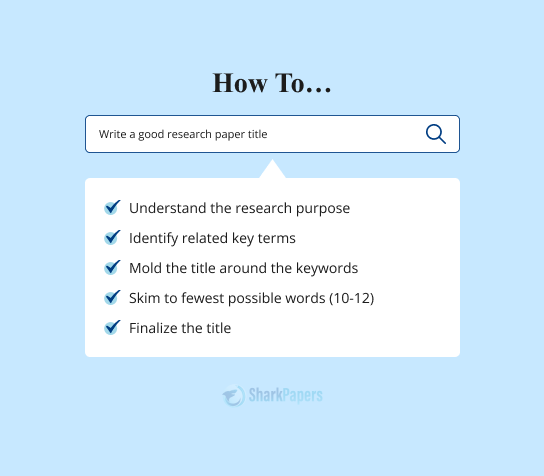
On this Page
Understanding the Importance of Research Paper Titles
Without a proper title that accurately captures the essence and purpose of your research, the paper is almost useless. The importance and significance of a title that strikes the perfect balance between clarity and creativity cannot be overstated.
Here is why a good research paper title is important:
- First Impression: A good title always leaves a positive first impression, influencing the readers to give your paper a thorough read.
- Provides Clarity: It provides a clear idea of your research topic without needing to read the entire paper.
- Relevance : It communicates the importance of your research and its contribution to the field.
- Searchability : Well-chosen keywords make your research easier to find in databases and online searches.
- Innovation : Creativity in the title hints at the innovative nature of your research.
- Professional Impact : A strong title positively influences how your work is perceived by editors and peers.
- Tone Setting : It gives readers a preview of your writing style and the overall approach of your study.
- Academic Identity : A memorable title contributes to your research's identity, making it more likely to be remembered and cited.
Characteristics of a Good Research Paper Title
Here are the 7 common characteristics of a good research paper’s title.
- Provides clarity
- Is relevant
- Includes keywords
- Provides specific details
- Targets the audience
- Doesn’t mislead
Now, let’s understand how to write a research paper title in 5 straightforward steps.

Paper Due? Why Suffer? That's our Job!
5 Easy Steps for A Perfect Research Paper Title
We have broken down the process of crafting strong research paper titles into 5 simple steps.
Here are the research paper title writing steps:
Step 1. Understand the Purpose of Your Research Paper
Making a title that catches attention and tells a story is important, and to do that, you need to know why you're making it. Consider the following questions to understand the purpose of your title:
- What is the central theme of my research?
- Why is my research significant?
- Who is the intended audience for my research?
- What sets my research apart or makes it innovative?
- How can I summarize my research concisely?
Settle down, take your time, and try to answer all these questions. Soon, you’ll be able to have a clear starting path to craft a perfect title for your research paper.
Let’s take an example, and we’ll adjust the questions accordingly.
The title is too long. To start the process of making it concise, answer these questions.
After you’ve found the answers to these questions, you can narrow down your title in the next step after finding the relevant keywords. Let's look at how to accomplish that.
Step 2. Identify Key Terms Related to Your Research
In this step, pinpoint the essential terms that encapsulate the core and scope of your study. Think of these terms as the building blocks of your title, representing the key concepts and focus of your research.
Choose terms that straightforwardly capture what makes your work unique.
For example, in the above sample title that relates to mental well-being for urban citizens, some key terms are:
- Urban residents
- Comprehensive survey
- Daily physical activity
- Mental well-being
- Positive correlation
- Improved mental health
You can turn to modern techniques like using search engines and Google Scholar to find relevant keywords. Such key terms have the potential to boost the online visibility of your paper.
Step 3. Mold Your Title According to the Relevant Keywords
Here is a skimmed-down title that we’ve achieved by shifting some words around, and using the proper syntax:
The title is getting closer to the final stage, but it is still too long. Read the next steps to create a working title for your research document.
Step 4. Skim to The Fewest Words Possible
Short and sweet is the golden rule for a suitable and good research paper title.
Here is how you should keep your title concise:
- Remember that the title is a concise and attention-grabbing piece of text that immediately grabs the reader’s interest
- Trim away any unnecessary details that don't contribute to the core message
- Your title should summarize the intent of your research study effectively
- Avoid using complete sentences in the title
- Use phrases to keep it concise and to the point
For example, the title we crafted in the last step is still quite long. Using the guidelines given above, we can skim it down to:
Typically, a title under 12 words is ideal. Keeping your title concise and using the fewest possible words has the highest chance of capturing the reader's attention. Avoid using any unnecessary words that add length to the title.
Now, to polish this title to perfection, move on to the next step.
Step 5. Finalize Your Title
Once you've trimmed down and adjusted your title, get feedback from others. Is it clear? Does it make them curious? Polish until your title shines like a beacon, inviting people to explore your research.
After feedback, your final title could be:
This final version aims to be clear, concise, and captivating. It sparks interest and urges readers to dive into the details of urban well-being and the impact of daily activity on mental health.

Tough Essay Due? Hire Tough Writers!

Examples of Research Paper Titles
Getting help from practical examples of good research paper titles will help you understand better.
We’ve collected some research title examples here. The following table evaluates the titles on certain factors. A good title should satisfy the complete criteria in the table below:
What is a Research Paper Subtitle?
A research paper subtitle is an additional, explanatory phrase or brief statement that follows the main title of the research paper. Although not a necessity, It provides more context, clarification, or additional information about the study.
Typically, subtitles are common in social sciences research papers. Here are some examples of research paper subtitles.
Main title : “Exploring Dark Matter in the Universe” Subtitle : “Quantum Mechanics and Observational Evidence in the Search for Elusive Cosmic Components”
Main Title : “Neurobiological Mechanisms of Memory Formation” Subtitle : “Examining the Role of Synaptic Plasticity and Neurotransmitter Release in Learning Processes”
Main Title : “Impact of Virtual Reality on Learning Outcomes” Subtitle : “An Experimental Study Assessing the Effectiveness of Immersive Educational Environments in STEM Education”
Main Title : “Inclusive Design for Human-Computer Interaction” Subtitle : “User-Centered Approaches and Accessibility Considerations in Crafting Technological Solutions for Diverse Populations”
Main Title : “Youth Civic Engagement in the Digital Age” Subtitle : “A Comparative Study of Online Activism and Traditional Participation Among Urban and Rural Adolescents”
Some Tips on How to Write a Good Research Paper Title
Although we have covered every writing step in crafting a research paper title, keeping in mind some tips is a good idea as well. Follow these tips to make sure your title is as perfect as it can be:
- Always mold your title toward the target audience
- Choose the language that aligns with the style and tone of your paper
- Don’t end your title with a period (.), as it is not a sentence
- Do not use overly complex words in the title
- Make sure your title accurately represents the intent of your paper
- Use active verbs to convey action or intent
- You can also include a reference to the thesis in your title
- Provide specific details about your focus, methodology, or findings
To wrap things up, writing a title for a research paper is considered one of the most challenging tasks in research writing. Choosing a title that accurately portrays your research work, its focus, and its aim isn’t an easy task.
With our detailed guide on how to craft a captivating research paper title, you can give your research paper an edge. From the initial draft to the final polishing of the title, you can write a great title with a little effort.
However, if you still find it rather challenging to give your paper a suitable title, don’t worry, we have a solution for that as well. This is where our expert writers come to play.
You can reach out to our paper writing service online and tell us exactly what you require. Our professionals have what it takes to craft winning papers.
Get custom research papers from us at the most affordable rates today!
Frequently Asked Questions
How do i write a good scientific research paper title, abstract, and keywords.
Title : Clearly convey the main focus, be concise, use relevant keywords for searchability. Abstract : Summarize research objectives, methods, results, and conclusions concisely; emphasize significance; avoid jargon. Keywords : Identify core concepts, consider likely search terms, use accepted terminology, be specific to enhance discoverability.
How to write a research paper title page?
Follow these steps:
- Center the title at the top.
- Include author names and affiliations below
- Add a running head if needed.
- Place the page number in the top right
- Use a readable font and follow citation style guidelines
How to write a science report title?
Crafting a science report title involves clearly stating the subject, being concise with key terms, considering audience and style, and adhering to formatting guidelines.
How to make a research paper title page in MLA style?
- Place the title at the center, avoiding bold or underlining
- Below the title, include your name, instructor's name, course, and date, aligned to the left
- Use a readable font (e.g., Times New Roman) in 12-point size
- Double-space all text
- Do not use a separate title page unless instructed otherwise; include this information on the first page of your paper
How to write a title for a lab report?
Crafting a lab report title requires clarity and conciseness. Clearly state the experiment's focus, use key terms, and include relevant variables. Follow any provided formatting guidelines for precision.
What is the best title for a research paper?
There is no universal “best” title for a research paper, as it depends on the specific content and focus of the study. The title should accurately reflect the research topic, be concise, and spark interest.

Donna writes on a broad range of topics, but she is mostly passionate about social issues, current events, and human-interest stories. She has received high praise for her writing from both colleagues and readers alike. Donna is known in her field for creating content that is not only professional but also captivating.
Was This Blog Helpful?
Keep reading.
- Learning How to Write a Research Paper: Step-by-Step Guide
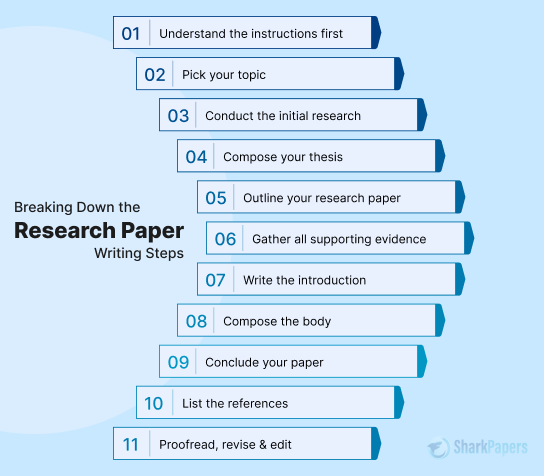
- Best 300+ Ideas For Research Paper Topics in 2024

- A Complete Guide to Help You Write a Research Proposal

- The Definitive Guide on How to Start a Research Paper
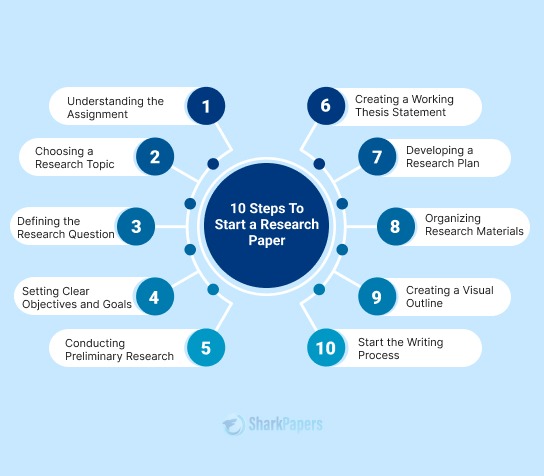
- How To Write An Introduction For A Research Paper - A Complete Guide
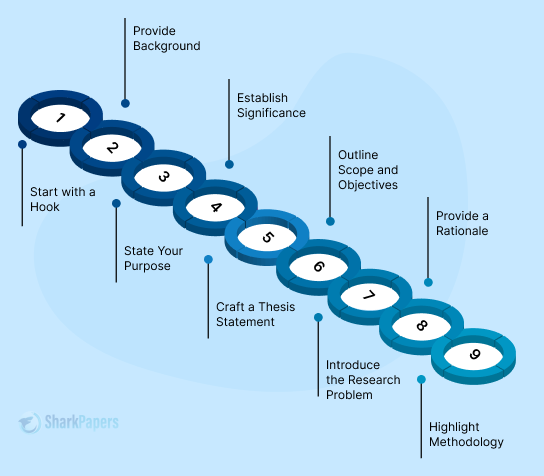
- Learn How To Write An Abstract For A Research Paper with Examples and Tips
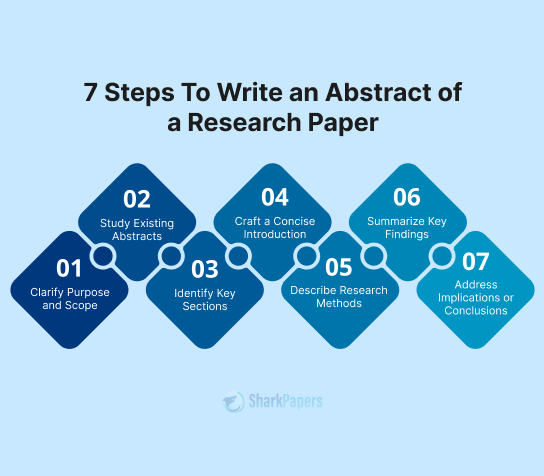
- How to Write a Literature Review for a Research Paper | A Complete Guide
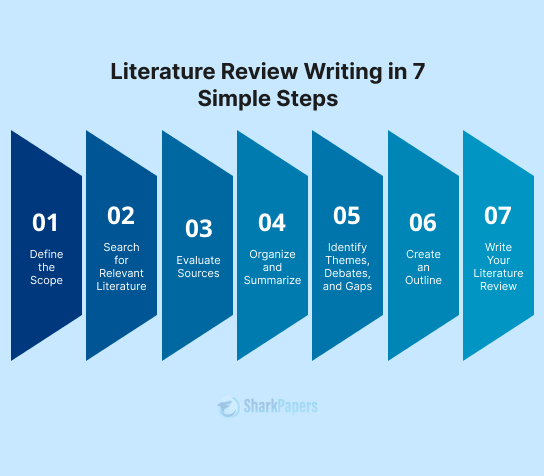
- How To Write The Methods Section of A Research Paper
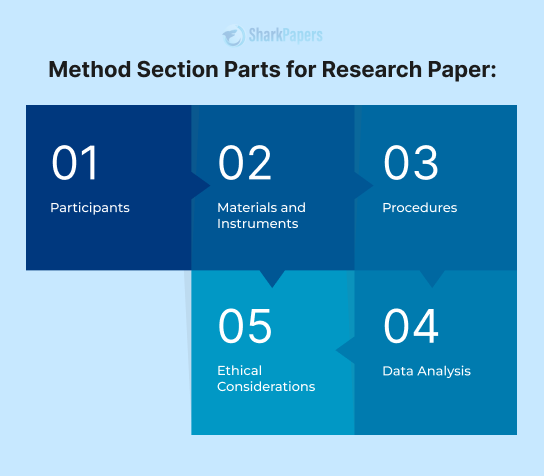
- How to Write a Research Paper Thesis: A Detailed Guide
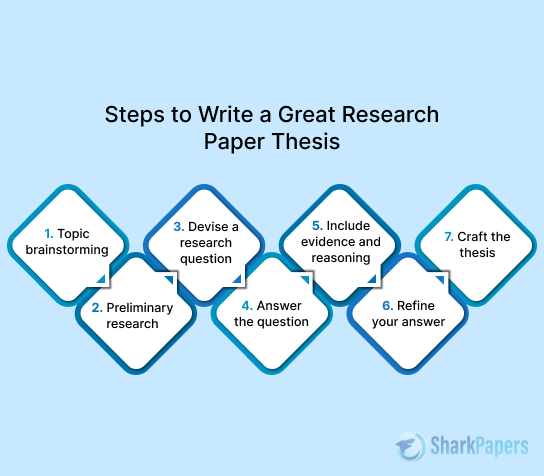
- A Detailed Guide on How To Write a Conclusion for a Research Paper
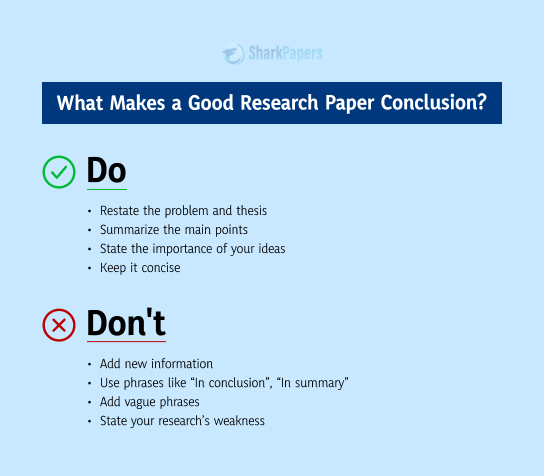
- How To Write The Results Section of A Research Paper | Steps & Tips
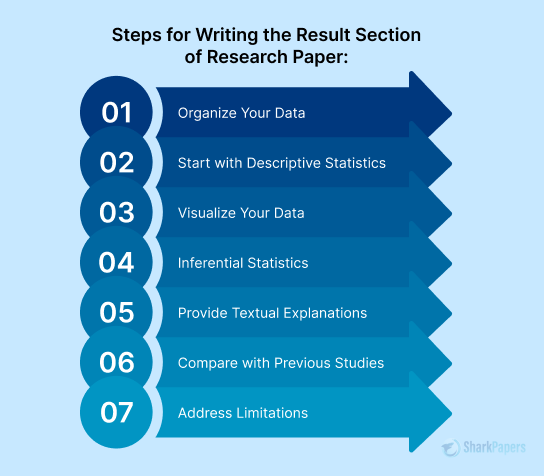
- How to Write a Problem Statement for a Research Paper: An Easy Guide
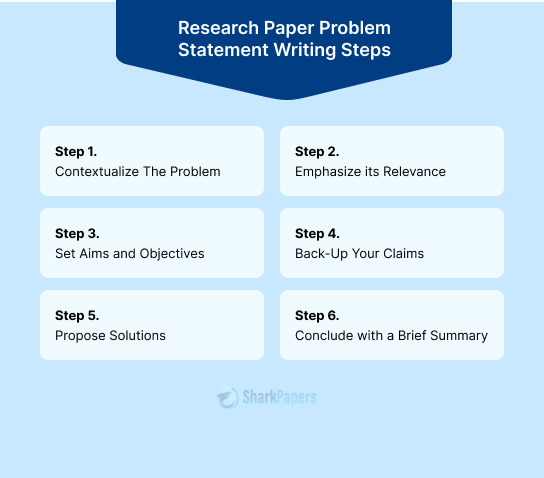
- How to Find Credible Sources for a Research Paper
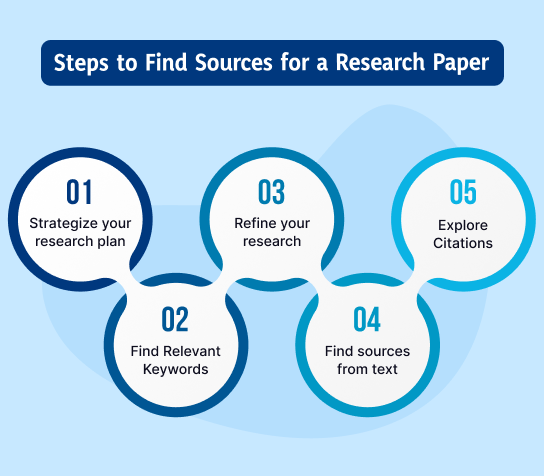
- A Detailed Guide: How to Write a Discussion for a Research Paper
)
- How To Write A Hypothesis In A Research Paper - A Simple Guide
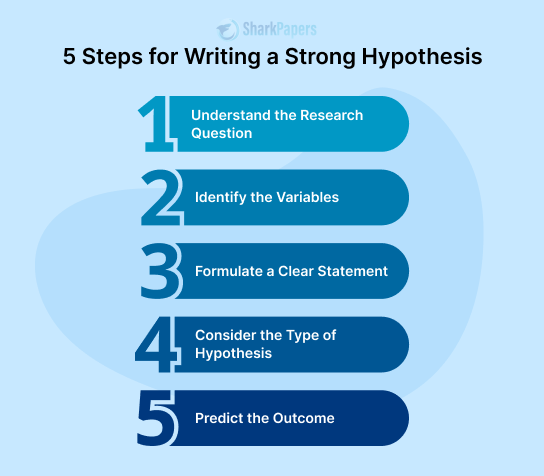
- Learn How To Cite A Research Paper in Different Formats: The Basics
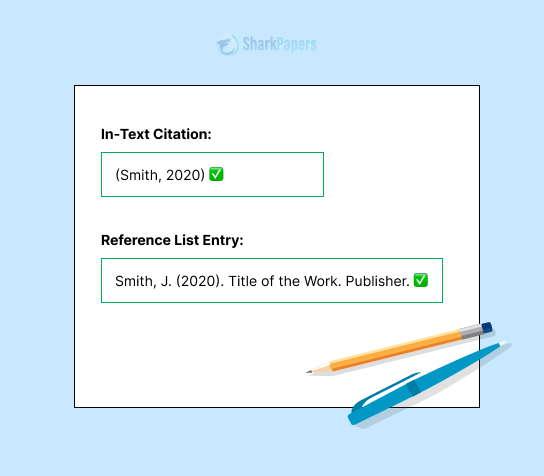
- The Ultimate List of Ethical Research Paper Topics in 2024
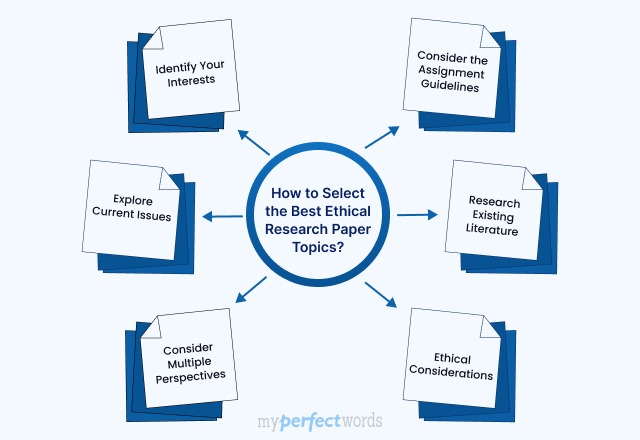
- 150+ Controversial Research Paper Topics to Get You Started
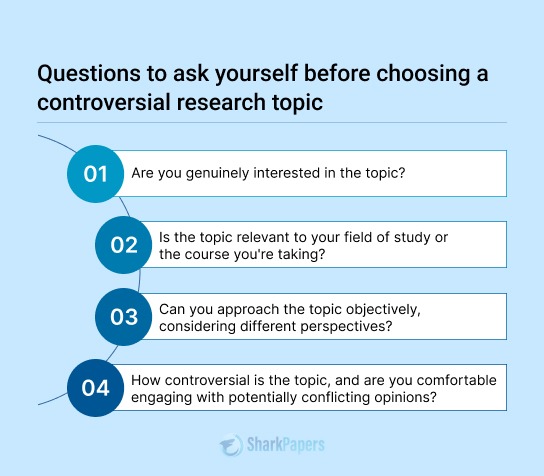
- How to Edit Research Papers With Precision: A Detailed Guide
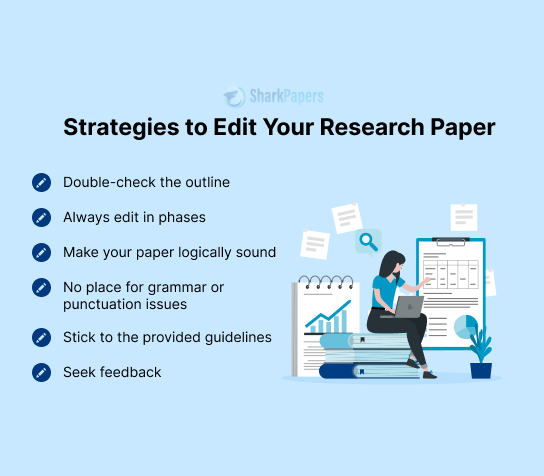
- A Comprehensive List of Argumentative Research Paper Topics
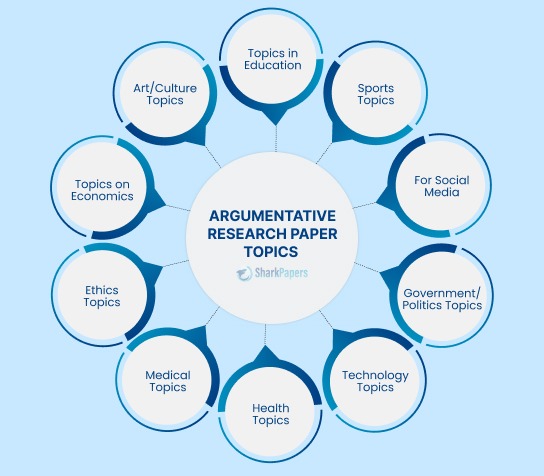
- A Detailed List of Amazing Art Research Paper Topics
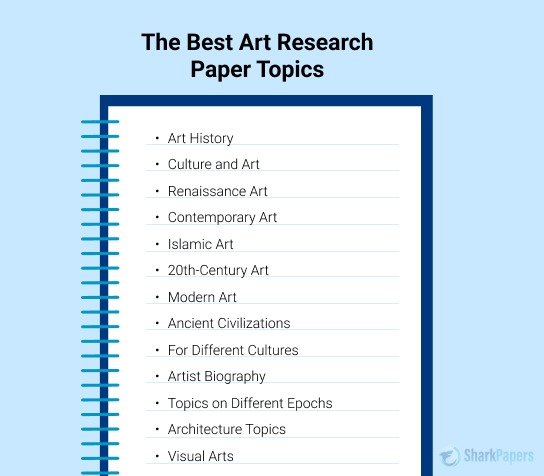
- Diverse Biology Research Paper Topics for Students: A Comprehensive List
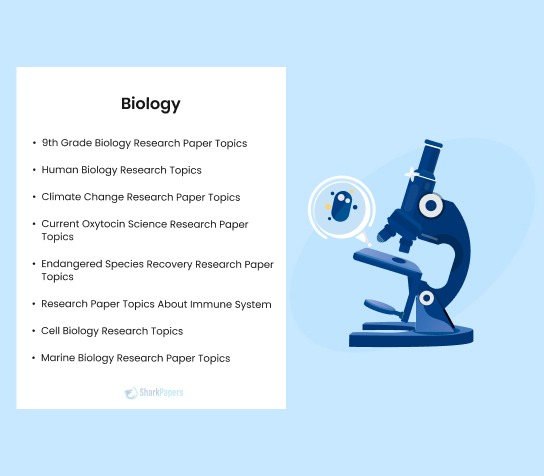
- 230 Interesting and Unique History Research Paper Topics

- 190 Best Business Research Paper Topics
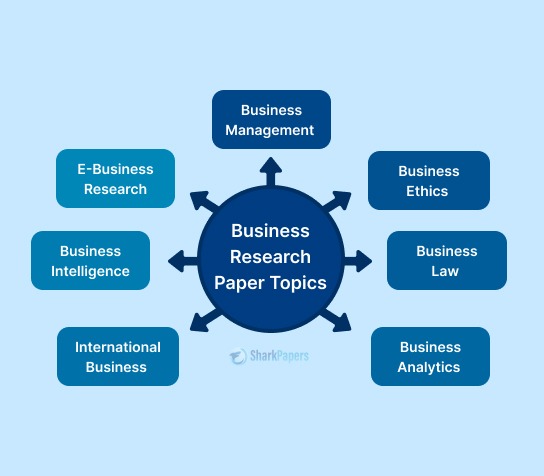
- 200+ Engaging and Novel Literature Research Paper Topics
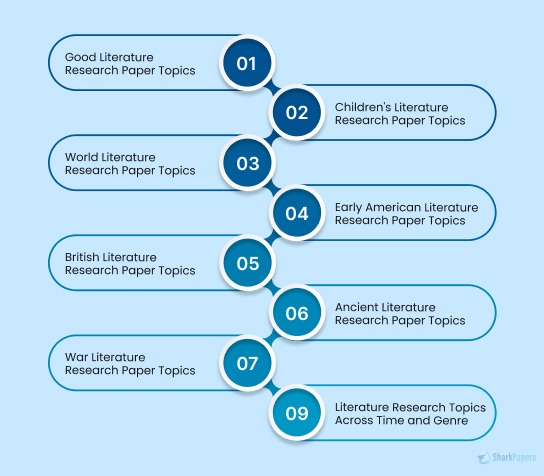
- A Guide on How to Write a Social Science Research Paper
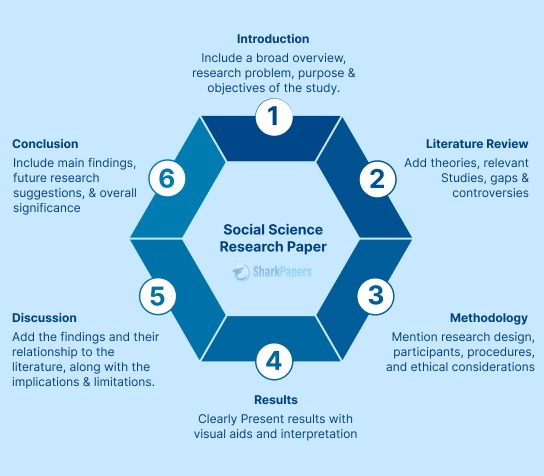
- Sociology Research Papers: Format, Outline, and Topics
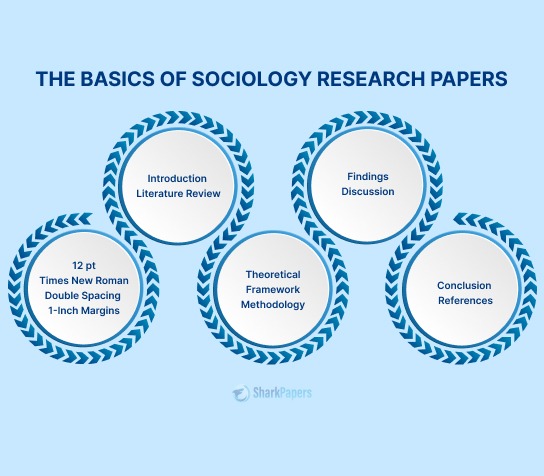
- Understanding the Basics of Biology Research Papers
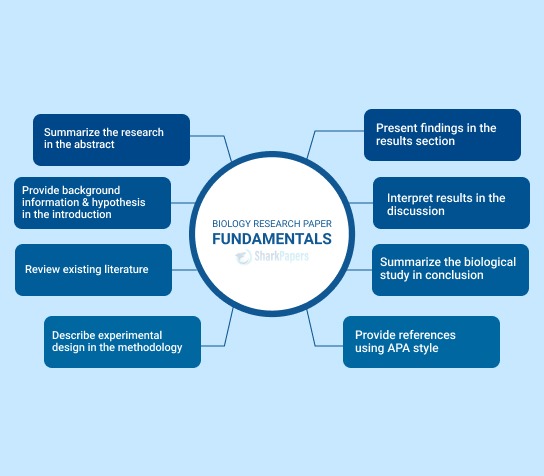
- How to Write a Psychology Research Paper: Guide with Easy Steps
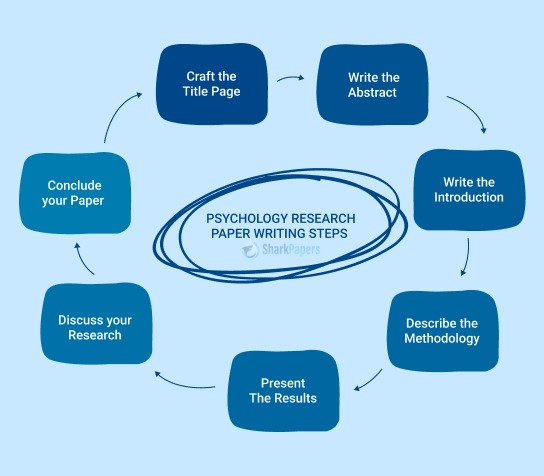
- Exploring the Different Types of Research Papers: A Guide
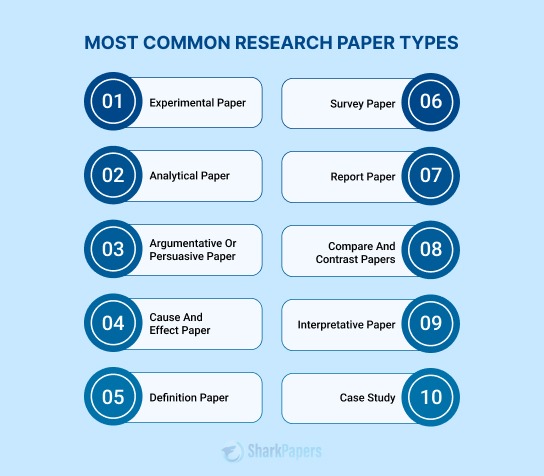
- Scientific Research Paper: Types, Formats, Structure & Writing Process

- Argumentative Research Paper | A Step-by-Step Guide

- Analytical Research Papers: A Detailed Walkthrough

- Experimental Research Paper Explained Comprehensively

- An In-Depth Look at Psychology Research Paper Examples

- 15+ Research Paper Examples for Different Types and Formats

- Free Argumentative Research Paper Examples

- Refine Your Literary Skills with Literature Research Paper Examples

- Get Inspired by 10+ Biology Research Paper Examples

- A Comprehensive Guide to History Research Paper Examples

- An Extensive List of Business Research Paper Examples

- 10+ Best APA Research Paper Examples for Effective Writing

- 10+ Expertly Crafted MLA Research Paper Examples

- Explore 8+ Chicago Research Paper Examples for Academic Excellence

- 15+ Examples of Abstracts for Research Papers

- Exploring IEEE Research Paper Examples: A Practical Guide

- Exploring Research Paper Thesis Examples: A Beginner's Guide

- 10 Free Research Paper Proposal Examples
-12114.jpg)
- A Look at 10 Interesting Art Research Paper Examples

- Survey Research Papers: Types, Format, Writing & Examples

- A Closer Look Into Research Paper Format: APA, MLA, Chicago & IEEE

- APA Research Paper Format 7th Edition: Guide with Examples

- MLA Research Paper Format Made Easy: Step-by-Step Guide

- Formatting Research Paper Title Page in APA, MLA & Chicago

- Crafting the Perfect Research Paper Outline | Steps & Examples

- A Detailed Guide to Chicago Research Paper Format

- An Easy Guide to IEEE Research Paper Format

- 12+ Practical Research Paper Outline Examples for Structuring Your Thoughts

- Engaging Psychology Research Paper Topics for Your Next Project

Struggling With Your Paper?
Get a Custom Paper Written at
with a FREE Turnitin report, AI report, title page, unlimited revisions, and a lot more!
LIMITED TIME ONLY
People Also Read
OFFER EXPIRES SOON!
© 2024 - All rights reserved
Disclaimer: All client orders are fulfilled by our team of experienced, professional writers. The essays and papers we provide are intended to serve as educational tools and reference models only, and should not be submitted as original work.
LOGIN TO YOUR ACCOUNT
SIGN UP TO YOUR ACCOUNT
- Your phone no.
- Confirm Password
- I have read Privacy Policy and agree to the Terms and Conditions .
FORGOT PASSWORD
- SEND PASSWORD
- Privacy Policy

Home » Research Paper Title – Writing Guide and Example
Research Paper Title – Writing Guide and Example
Table of Contents

Research Paper Title
The title of a research paper is the first thing readers see, serving as a window into the study’s purpose, scope, and content. A well-crafted title grabs attention, reflects the main focus of the research, and helps readers determine if the paper is relevant to their interests. Writing a strong research paper title is essential for effectively communicating the study’s significance and attracting the right audience.
Importance of a Research Paper Title
A well-chosen research paper title:
- Attracts Attention : A catchy, descriptive title piques readers’ interest and encourages them to read further.
- Reflects Content : The title should accurately represent the study’s focus, variables, and findings.
- Improves Discoverability : Using relevant keywords in the title helps increase the paper’s visibility in search engines and academic databases.
- Establishes Scope : The title provides a concise overview, guiding readers on what to expect from the paper.
Characteristics of an Effective Research Paper Title
An effective research paper title should be:
- Descriptive and Specific : Clearly convey the study’s focus and main findings without being too vague.
- Concise : Avoid unnecessary words; keep the title clear and to the point.
- Informative : Include relevant information about the topic, research method, or population studied.
- Attention-Grabbing : Choose engaging language to make the title stand out.
- Keyword-Rich : Use relevant terms to improve searchability and increase visibility.
Writing Guide for Research Paper Titles
Step 1: identify key elements of the study.
Consider the main components of your study, including:
- Research Topic : The general subject or field of study (e.g., mental health, climate change).
- Variables : Key factors or concepts studied (e.g., social media use, anxiety levels).
- Research Method : The approach or methodology used (e.g., survey, experiment).
- Population : The specific group studied (e.g., college students, healthcare professionals).
- Main Findings : Any significant results that can add interest or specificity to the title.
Example : If the study examines the impact of social media on anxiety among college students using a survey, these elements will help shape a relevant title.
Step 2: Decide on the Title Type
Titles can be structured in various ways, each serving different purposes. Common title types include:
- Example : “Social Media Use and Anxiety Among College Students”
- Example : “Increased Social Media Use Correlates with Higher Anxiety Levels in College Students”
- Example : “Does Social Media Use Contribute to Anxiety in College Students?”
- Example : “Social Media and Mental Health: Exploring the Link Between Usage and Anxiety Among College Students”
Step 3: Incorporate Keywords
Choose keywords that represent the study’s topic, method, and variables. Keywords improve discoverability in academic databases and search engines, helping readers find your paper.
Example Keywords : Social media, anxiety, college students, mental health, survey.
Step 4: Keep the Title Concise and Avoid Jargon
A research paper title should generally be no longer than 12-15 words, depending on the journal’s guidelines. Avoid technical jargon or overly complex language that could confuse readers. Instead, aim for clarity and precision.
Example : Instead of “An Examination of the Correlation Between Digital Social Platforms and Increased Psychological Distress in Undergraduate Populations,” use “Social Media Use and Anxiety Among College Students.”
Step 5: Revise for Clarity and Impact
After drafting the title, review it to ensure it is clear, engaging, and accurately represents the study. Test the title’s impact by considering if it would capture your attention as a reader.
Example : If the initial draft title is “Social Media Use and Anxiety in College Students,” a revised version could be “Social Media Use Linked to Higher Anxiety Levels Among College Students,” which is more engaging.
Examples of Effective Research Paper Titles
- Example : “The Relationship Between Sleep Quality and Academic Performance Among High School Students”
- Why It Works : This title is clear, specific, and informs readers of the main variables and population studied.
- Example : “Mindfulness Training Reduces Stress and Improves Focus in Healthcare Professionals”
- Why It Works : It states the main finding, which makes it immediately interesting and relevant to readers.
- Example : “Can Green Spaces Improve Urban Residents’ Mental Health?”
- Why It Works : The question format engages readers and suggests an exploration of a relevant issue.
- Example : “Physical Activity and Mental Health: Examining the Impact of Exercise on Depression and Anxiety Symptoms”
- Why It Works : The main title establishes the topic, while the subtitle adds detail, making it clear and informative.
Tips for Writing a Research Paper Title
- Use Active Language : Choose active and descriptive words to make the title more engaging. For example, instead of “An Investigation of Social Media Effects on Anxiety,” use “Social Media Use Increases Anxiety Among Adolescents.”
- Avoid Redundancy : Avoid words that don’t add meaning (e.g., “A Study on” or “An Investigation into”). Go directly to the main points.
- Align with Journal Requirements : Check the target journal’s guidelines for title length, format, and style. Some journals may require specific wording or have character limits.
- Avoid Ambiguity : Make sure the title conveys a clear idea of what the paper covers, avoiding vague terms like “Effects on Health” without specifying which health outcomes are studied.
- Reflect the Study’s Tone : Ensure the title reflects the study’s approach (e.g., “Exploring,” “Investigating,” or “Assessing” for qualitative studies; “Comparing,” “Measuring,” or “Examining” for quantitative studies).
Common Pitfalls to Avoid
- Overly Broad Titles : A broad title may be uninformative and fail to attract specific readers. Aim for precision in the variables, population, and context.
- Technical Jargon : Avoid specialized terms that might be unfamiliar to a general audience unless they are essential to the title.
- Lengthy Titles : Long titles may appear cumbersome and discourage readership. Aim to keep titles concise and impactful.
- Vague Wording : Avoid titles that are too generic or vague, as they fail to communicate the study’s specific focus.
Example Titles and Revisions
- Revised Title : “Challenges in Online Learning: Factors Affecting Student Engagement in Remote Classrooms”
- Why It Works : The revised title specifies the context (online learning) and outcome (student engagement), making it clearer and more informative.
- Revised Title : “Air Pollution Exposure and Respiratory Health in Urban Children: A Longitudinal Study”
- Why It Works : The revised title specifies the environmental factor (air pollution), population (urban children), and method (longitudinal study), which provides more context.
- Revised Title : “Media Coverage and Public Opinion on Climate Change: A Comparative Study of the U.S. and Europe”
- Why It Works : The revised title provides specific information about the topic (climate change), variables (media coverage and public opinion), and context (U.S. and Europe).
Crafting an effective research paper title is essential for attracting the right audience and ensuring your paper’s impact. A good title is specific, concise, descriptive, and rich with relevant keywords to improve discoverability. By following this guide and refining your title to reflect the study’s focus, methods, and findings, you can create an engaging and informative title that captures readers’ interest and communicates the essence of your research.
- Creswell, J. W., & Creswell, J. D. (2018). Research Design: Qualitative, Quantitative, and Mixed Methods Approaches (5th ed.). SAGE Publications.
- Silvia, P. J. (2007). How to Write a Lot: A Practical Guide to Productive Academic Writing . American Psychological Association.
- Swales, J. M., & Feak, C. B. (2012). Academic Writing for Graduate Students: Essential Tasks and Skills (3rd ed.). University of Michigan Press.
- Day, R. A., & Gastel, B. (2011). How to Write and Publish a Scientific Paper (7th ed.). Greenwood.
- Glasman-Deal, H. (2010). Science Research Writing for Non-Native Speakers of English . Imperial College Press.
About the author
Muhammad Hassan
Researcher, Academic Writer, Web developer
You may also like

APA Research Paper Format – Example, Sample and...

Research Paper Introduction – Writing Guide and...

Table of Contents – Types, Formats, Examples

Research Design – Types, Methods and Examples

Appendices – Writing Guide, Types and Examples

Theoretical Framework – Types, Examples and...

IMAGES
VIDEO